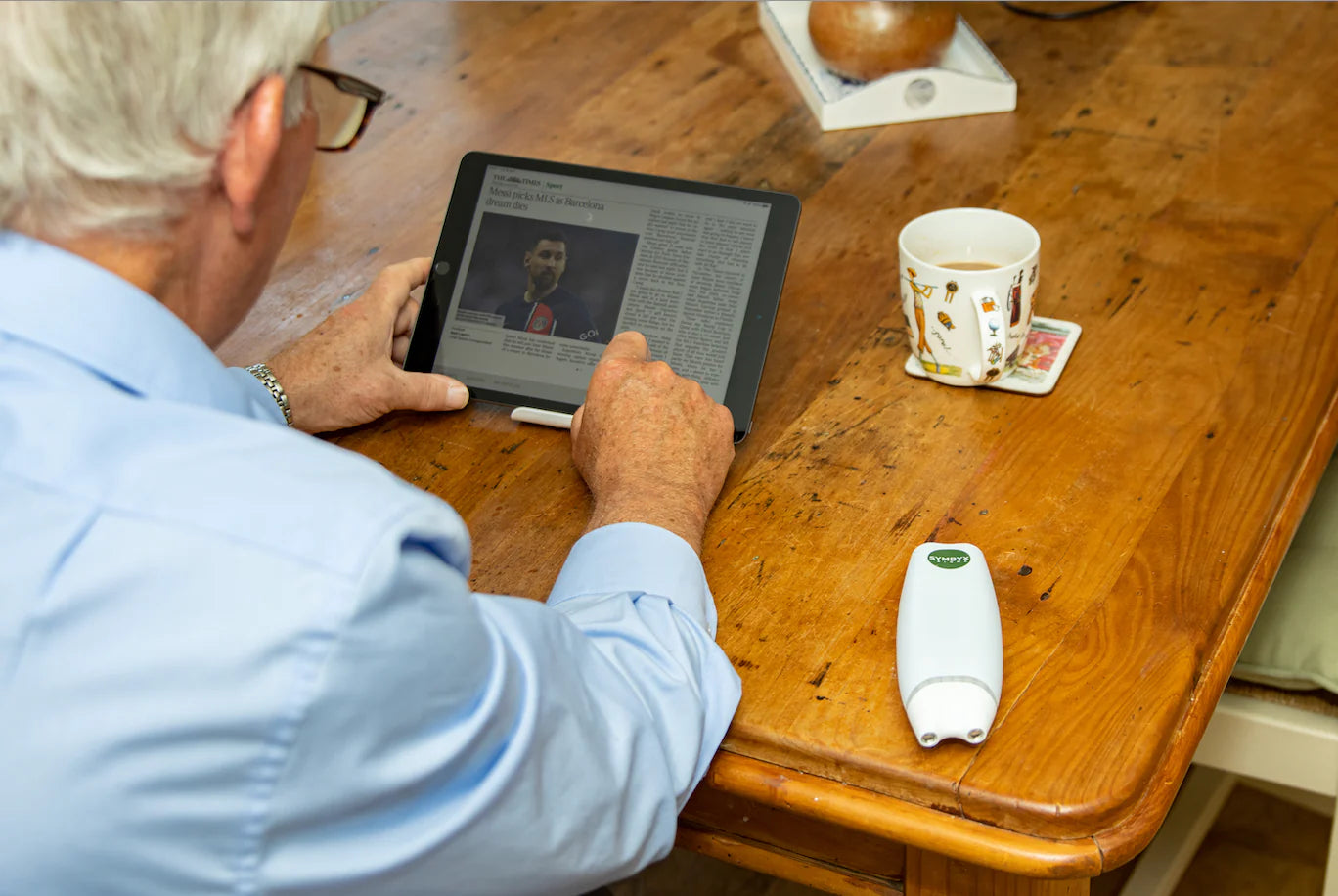3. Antioxidant-Rich Nutrition
It’s now well-established that Parkinson’s may originate in the gut. Constipation affects 70-80% of people with Parkinson's. In fact, for many people, they can experience constipation for a decade or more before developing the classic signs of stiffness, slowness and tremor. An unhealthy gut microbiome(the trillions of bacteria and other organisms that live in your gut and play a really important role for your health) has also been closely linked with Parkinson's disease, and directly affects dopamine in the brain. This was an important discovery, as PD is characterised by a loss of dopamine. This is why a balanced diet is so important. Here is what to include in your diet:
- Antioxidant-rich foods, like fruits, vegetables, and whole grains, is important.
- High-quality protein sources and healthy fats like non-fried oily fish, avocados and olive oil also support brain and nerve health.
- Fibre for helping regulate bowel movements and supporting a healthy gut microbiome. In fact, butyrate, which is broken down from fibre, has been shown to be particularly protective for brain dopamine levels.
Of course, then there’s also avoiding unhealthy food; things like soft drinks and fried food. There also appears to be a link between certain pesticides and Parkinson’s. Therefore, it’s also good to consider where your food sources are coming from, and what farming practices they’ve been using.
We recommend Dr. Laurie Mischley’s MVP study for more information on Parkinson’s disease progression. She also has some useful resources on nutrition and supplementation.
4. Mind-Body Therapies
Practices such as meditation, yoga, tai chi, and mindfulness-based stress reduction techniques are known to improve overall wellbeing, decrease stress, increase mood positivity, and promote better sleep. These therapies offer a way to cope with the emotional impact of PD. Many people falsely think that PD only affects motor coordination, but that’s not true.Parkinson’s disease includes a whole range of non-motor symptoms, including gut issues, sleeping difficulty, increased pain, fatigue, and mood issues. Keeping stress levels in check will help.
5. Personalised Physical Therapy
Collaborating with a physical therapist, such as a physiotherapist, neuro-physiotherapist or chiropractor, can help manage Parkinson's symptoms. A therapist can personalise techniques and exercises to improve your mobility, balance, strength, and coordination, as well as decrease pain, and provide important lifestyle advice. Additionally, they can help make changes to your home environment for increased safety and comfort and put you in touch with exercise and support groups.
6. Active Social Engagement
For many people, a diagnosis of Parkinson’s disease can lead to social withdrawal and isolation. “Off” periods, facial masking, fatigue, low mood, and other symptoms can make maintaining social connections increasingly difficult. Unfortunately, social isolation worsens Parkinson's disease symptoms and can lead to feelings of depression and anxiety.Actively participating in a support group, community activities, or a favourite hobby can help maintain social connections, leading to enhanced social and emotional wellbeing. It’s important to find hobbies that suit your pace, and to be open and honest about what your needs are when you're participating in them with others.
Follow SYMBYX Biome on Facebook, Twitter, Instagram and TikTok to find other people with Parkinson's, including Carer's groups that offer support to Carers of People with Parkinson's.
A Global Support Network by SYMBYX
Implementing these 6 medicine-free strategies can complement traditional treatments and empower you to better manage your Parkinson's disease.We encourage consulting with your healthcare provider before starting any new therapy. The best part is, you can get started on making these positive changes today! SYMBYX devices are approved for home-use and available worldwide. You can learn more at www.symbyxbiome.com. Our complimentary worldwide Clinical Support team are also here to provide you with ongoing support and guidance, no matter what stage you are at on your SYMBYX journey. If you have any questions about SYMBYX light therapy for Parkinson’s, please contact info@symbyxbiome.com.
References
Camerucci, E. et al. (2022) Lifelong constipation in parkinson’s disease and other clinically defined alpha-synucleinopathies: A population-based study in southeast Minnesota, Parkinsonism & Related Disorders.
CL;, M.M.-Y.I.X. (2017) Long-term effects of exercise and physical therapy in people with parkinson disease, Nature reviews. Neurology.
Kwon, D. (2018) Does parkinson’s begin in the gut?, Scientific American.
Singh, B. et al. (2023) Effectiveness of physical activity interventions for improving depression, anxiety and distress: An overview of systematic reviews, British Journal of Sports Medicine.




